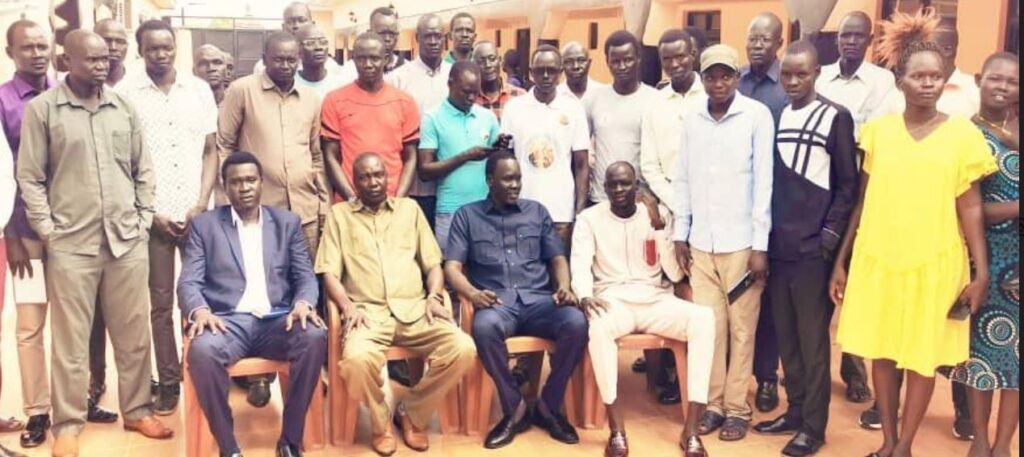The Warrap State Ministry of Health and Environment in collaboration with the National Ministry of Health, with funding from the World Health Organization (WHO), conducted a five-day training for 40 health workers from across the state.
The training commenced last Friday and ended on Thursday this week and aimed to equip clinical officers, midwives, and nurses among others with skills in the management of malaria during the malaria season.
Dr. Barach Malith, the state’s health minister, said his ministry planned early to enhance malaria management and treatment using new diagnosis tools to prevent morbidity and mortality in the state.
“The Ministry of Health planned early to address malaria management and treatment and we are currently conducting malaria case management training, including practical fieldwork at a nearby health center with several technical staff from all the five counties of Warrap State,” he said. “We targeted the nurses at the health centers, clinical officers, midwives, and medical officers because they are the ones managing malaria cases in the state and because the number of malaria cases is increasing every day in the health facilities due to the rainy season.”
Dr. Malith added: “Pregnant mothers, children, and elderly people are always vulnerable to malaria so health workers will go with the knowledge of how to investigate malaria using different methods.”
Relatedly, he announced that the state ministry of health will launch a malaria vaccination campaign next Monday for children aged three and below because they are vulnerable to malaria.
For his part, Dr. Gong Dut, the lead facilitator of the training, said the training modules covered a lot of topics related to malaria cases.
“The content is the background of malaria in South Sudan, the basics facts of malaria and we taught them about updated diagnosis and management of uncomplicated and complicated malaria as an aspect to pregnant mothers and the importance of Intermittent Preventive Treatment in Pregnancy (IPTP),” he explained. “The training touched on home treatment, which is Boma Health Initiative and interpersonal care of malaria case management. The training also covered lots of modules including issues to do with routine surveillance, monitoring and evaluation, data completeness and data quality for the state, and the importance of visiting hospitals and some catchment areas in Kuajok.”
Some participants told Radio Tamazuj that the training would refresh their skills and knowledge and improve their work.
Dr. Mayar Madut from Tonj Civil Hospital said the training introduced significant approaches to treating malaria that will help him manage cases in his health facility.
“It is a great reminder to all clinicians in the health facilities, including myself, and it reminds us about the severe condition of pregnant mothers and people who are immune-compromised and those coming from far areas, these people are vulnerable to malaria,” he stated. “The training gave us a clue about the progress in treatment and nature of management regarding malaria cases.”
Another participant, Abuk Mayen, a nurse from Akop Payam in Tonj North County, said she learned a lot about how to manage malaria.
“I learned how to manage and treat a sick person with malaria parasites because the signs and symptoms were shown to us,” she stated.




